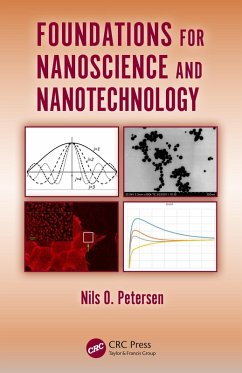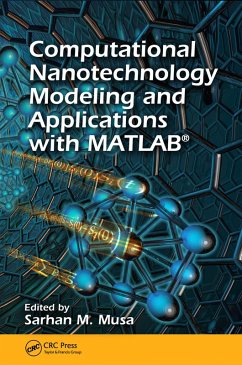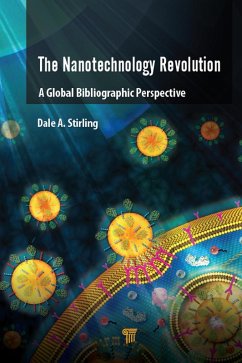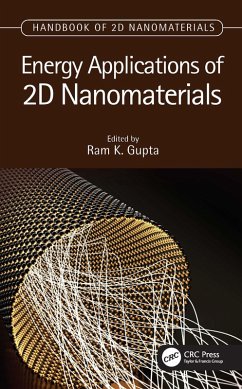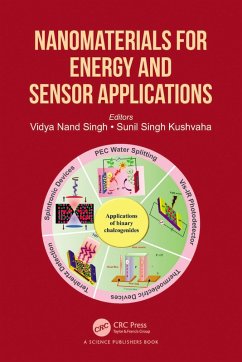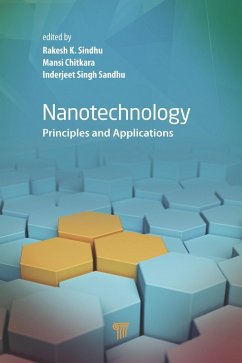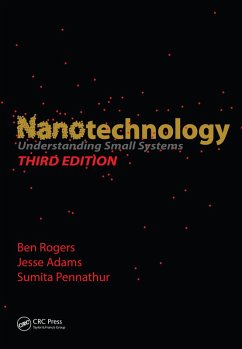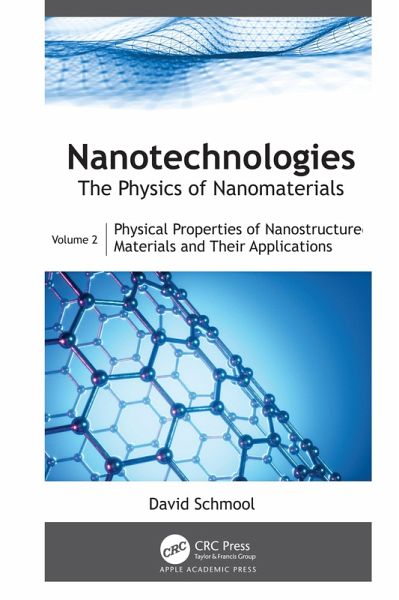
Nanotechnologies: The Physics of Nanomaterials (eBook, ePUB)
Volume 2: Physical Properties of Nanostructured Materials and Their Applications
Versandkostenfrei!
Sofort per Download lieferbar
145,95 €
inkl. MwSt.
Weitere Ausgaben:

PAYBACK Punkte
73 °P sammeln!
Volume 2: Physical Properties of Nanostructured Materials and Their Applications of Nanotechnology: The Physics of Nanomaterials (2-volume set) provides a good overview of the main techniques of the working principles and the type of structures that can be produced with nanomaterials. Specifically, Volume 2 discusses the mechanical, electrical, and optical properties of nanostructures as well as nanomagnetism, spintronics, spin dynamics, as well as a broad range of applications to illustrate how the physical properties of materials can be manipulated to perform very specific functions.Nanotech...
Volume 2: Physical Properties of Nanostructured Materials and Their Applications of Nanotechnology: The Physics of Nanomaterials (2-volume set) provides a good overview of the main techniques of the working principles and the type of structures that can be produced with nanomaterials. Specifically, Volume 2 discusses the mechanical, electrical, and optical properties of nanostructures as well as nanomagnetism, spintronics, spin dynamics, as well as a broad range of applications to illustrate how the physical properties of materials can be manipulated to perform very specific functions.
Nanotechnology: The Physics of Nanomaterials (2-volume set) is a comprehensive guide to the various aspects of nanophysics. The author's microscopic approach illustrates how physical principles can be used to understand the basic properties and functioning of low-dimensional systems. It provides an in-depth introduction to the techniques of production and analysis of materials at the nanoscopic level. Much of physics is based on our understanding of solid-state physics. These volumes show how limitations of size can give rise to new physical properties and quantum effects, which can be exploited in new applications and devices.
Volume 1: The Physics of Surfaces and Nanofabrication Techniques provides a broad introduction to nanophysics and nanotechnologies, and the importance of low-dimensional and surface physics is discussed indepth. Chapters in Volume 1 covers the large range of physical preparation techniques available for the production of nanomaterials and nanostructuring.
Key features:
Based on a lecture course the author has given over a period of several years, Nanotechnology: The Physics of Nanomaterials includes the benefit of feedback from students, helping to make the subject matter approachable and appealing to newcomers and students. The volumes will be valuable for courses in nanotechnologies, nanomedicine, nanobiotechnologies and more.
Nanotechnology: The Physics of Nanomaterials (2-volume set) is a comprehensive guide to the various aspects of nanophysics. The author's microscopic approach illustrates how physical principles can be used to understand the basic properties and functioning of low-dimensional systems. It provides an in-depth introduction to the techniques of production and analysis of materials at the nanoscopic level. Much of physics is based on our understanding of solid-state physics. These volumes show how limitations of size can give rise to new physical properties and quantum effects, which can be exploited in new applications and devices.
Volume 1: The Physics of Surfaces and Nanofabrication Techniques provides a broad introduction to nanophysics and nanotechnologies, and the importance of low-dimensional and surface physics is discussed indepth. Chapters in Volume 1 covers the large range of physical preparation techniques available for the production of nanomaterials and nanostructuring.
Key features:
- Provides a comprehensive treatment of nanoscience, covering all major areas of the physics involved in nanostructures, including sample preparation techniques, characterization methods, physical principles, and applications
- Presents an introduction and summary to each chapter, highlighting the principal ideas of each chapter in a concise manner
- Includes revision problems that will allow students to assess their progress at the end of each chapter
- Incorporates the author's 25 years research experience
Based on a lecture course the author has given over a period of several years, Nanotechnology: The Physics of Nanomaterials includes the benefit of feedback from students, helping to make the subject matter approachable and appealing to newcomers and students. The volumes will be valuable for courses in nanotechnologies, nanomedicine, nanobiotechnologies and more.
Dieser Download kann aus rechtlichen Gründen nur mit Rechnungsadresse in A, B, BG, CY, CZ, D, DK, EW, E, FIN, F, GR, HR, H, IRL, I, LT, L, LR, M, NL, PL, P, R, S, SLO, SK ausgeliefert werden.





